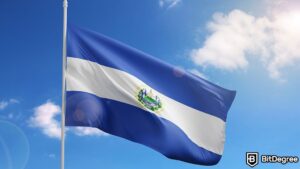[ad_1]
After FTX’s collapse, more and more companies are introducing Proof of Reserve systems.
Bybit, a Dubai-based cryptocurrency exchange established in 2018, has launched its Merkle Tree-based Proof of Reserves system.
According to the announcement shared on December 10th, from now on, Bybit customers can verify the exchange’s holdings and their own assets held in Bybit.

Did you know?
Want to get smarter & wealthier with crypto?
Subscribe – We publish new crypto explainer videos every week!
It is worth noting that the service is available to customers with holdings in Bybit’s trading or funding accounts. In the announcement, the company noted:
As part of our mission to be the Crypto Ark of the world, we spare no effort to ensure next-level reliability. As well as keeping our users’ assets safe and secure, we are also committed to full transparency via our Proof of Reserves (PoR).
By using Proof of Reserves, users can check and ascertain that assets are held in a 1:1 ratio.
In a nutshell, the Merkle Tree verification method allows customers to verify a specified set of data, which has been included in a “sealed” dataset.
Bybit co-founder and CEO Ben Zhou commented on the Merkle Tree verification, stating:
The cryptographic solution brings forth a crypto-native, trustless model of providing verifiable evidence of our on-chain holdings and liabilities.
In the announcement, the company highlighted that its Proof of Reserves allows customers to verify “the balance of assets in exchange via Merkle Tree, the balance and ownership of the wallet addresses disclose, the reserve ratio.”
It is worth noting that almost a month ago, Bybit shared its Bitcoin (BTC) and Ethereum (ERC-20) reserve wallet addresses. In the same announcement, Bybit stated that Tether (USDT), Bitcoin (BTC), Ethereum (ETH) and USD Coin (USDC) account for over 85% of Bybit reserves.
In other Bybit-related news, the Dubai-based crypto exchange has recently announced its plans to lay off around 30% of its global workforce. At that time, Bybit’s CEO stated that the decision was made due to “an ongoing re-organisation of the business” in an attempt to survive a bear market.
[ad_2]
Source link





